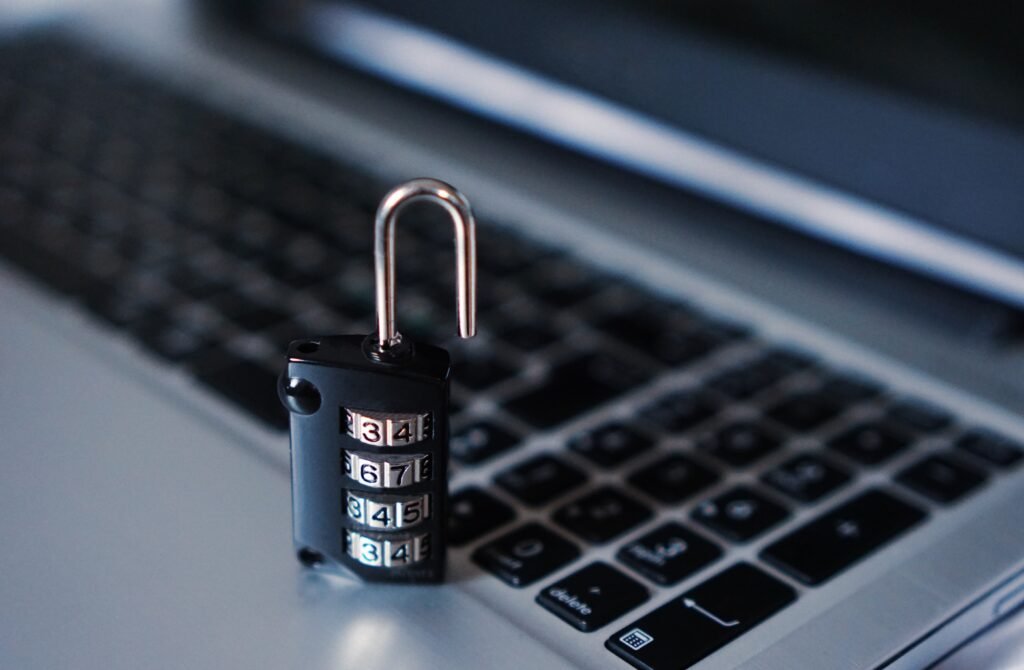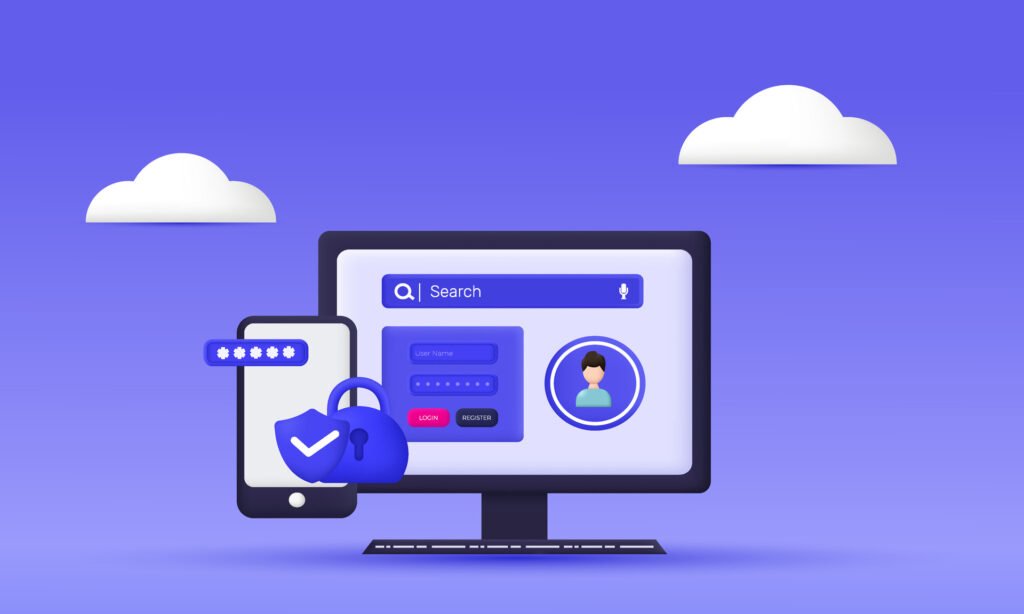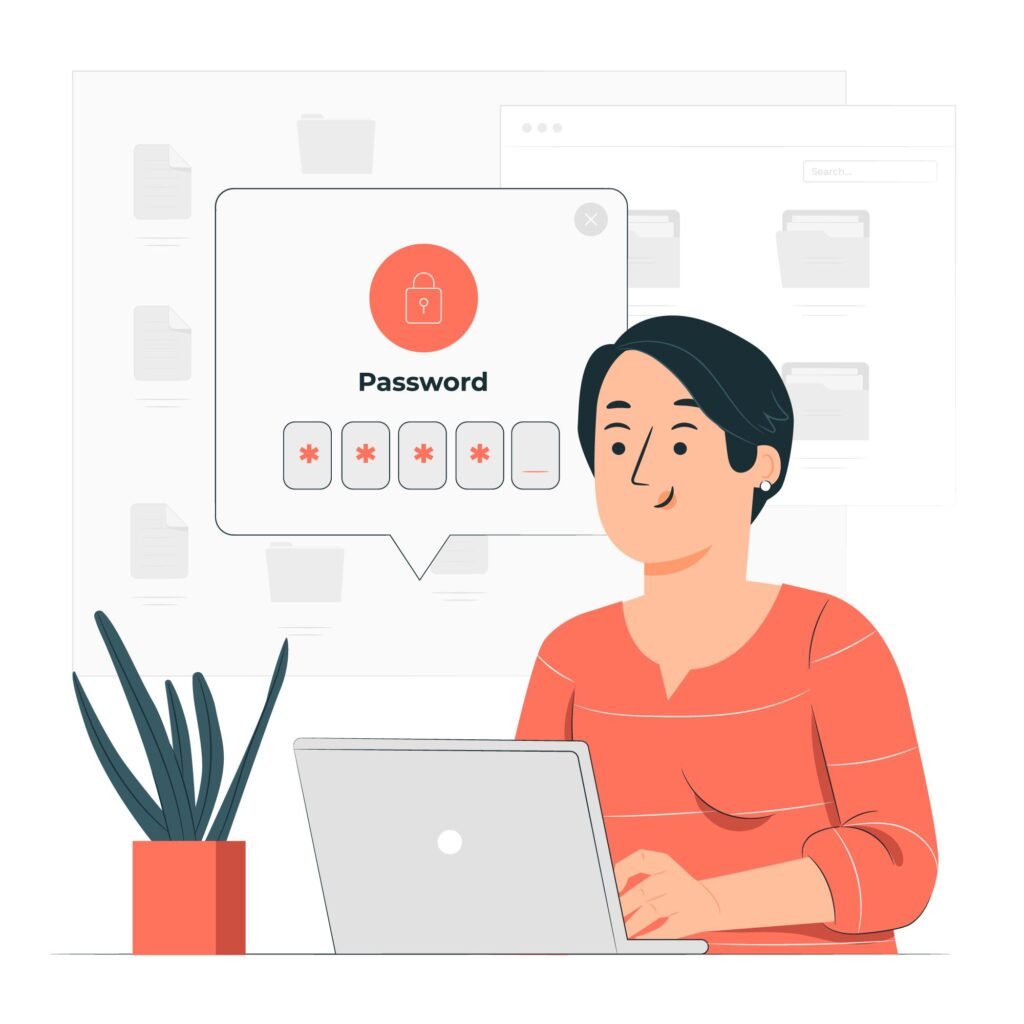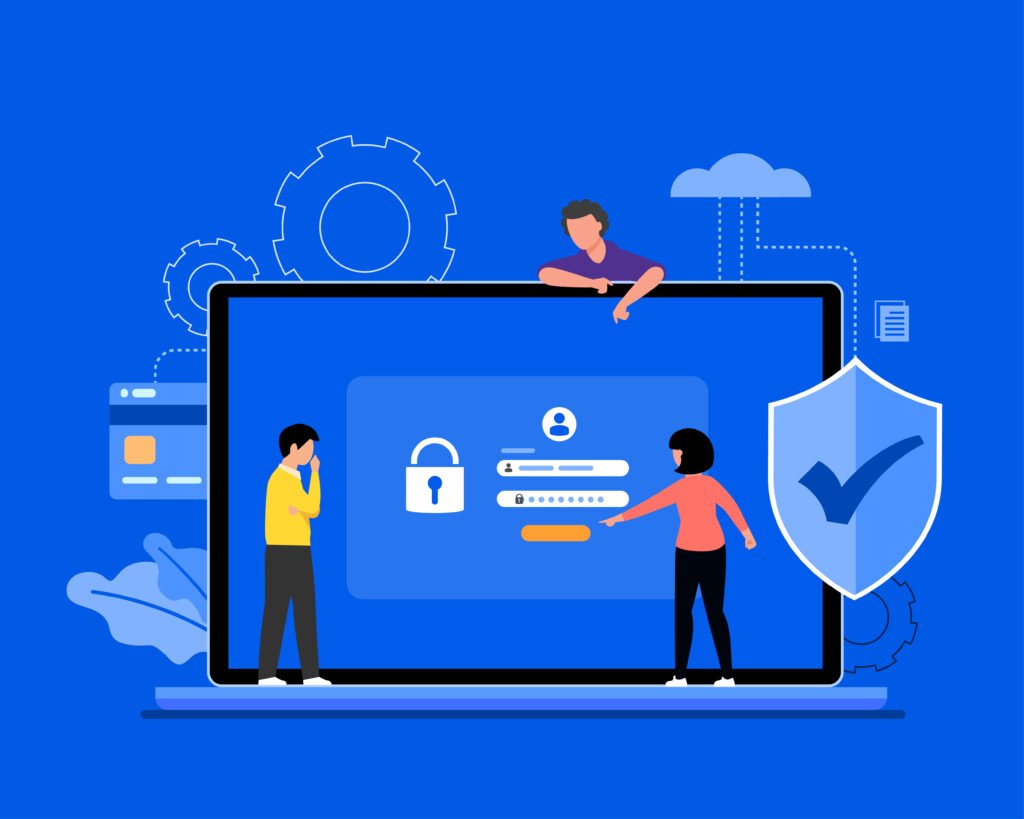Risk of weak passwords: Every day millions of online accounts are created that’s why your online security is more critical than ever each protected by a password. Yet the risk of weak passwords remains one of the biggest weaknesses people face when safeguarding personal or professional information. Weak passwords expose us to cyber threats like identity theft account hacking and unauthorized access to sensitive data.
This article will not only help you understand the importance of secure passwords but also show you how to generate strong memorable passwords effortlessly. We’ll also dive into how our password generator at makemypin.com can help you build passwords that strike the perfect balance between safety and simplicity. By the end of this post you’ll know exactly how to avoid the pitfalls of weak passwords and improve your overall digital security.

Contents List
Understanding the Risk of Weak Passwords

One of the most overlooked aspects of online security is the strength of the password guarding your accounts. A weak password makes it easy for hackers to access your private data, leading to serious consequences such as financial loss, data breaches, and stolen identities.
Consider this: The most commonly used passwords worldwide are still simple combinations like “123456,” “password,” or the user’s own name. These passwords are easy to remember but equally easy to crack. Hackers use various techniques, such as brute force attacks where they try numerous password combinations until they find the right one, or dictionary attacks where they use common passwords to break into accounts. Weak passwords provide minimal resistance to these methods, putting your personal and professional life at risk.
The risk of weak passwords is further amplified when people reuse the same password across multiple accounts. A hacker only needs to gain access to one account to exploit the same credentials across numerous services. The “domino effect” may bring widespread damage. To avoid such situations, it is crucial to use strong unique passwords for each account.
The Importance of Strong Passwords
your first line of defense against cyberattacks is a strong password. While it might seem complicated to create secure passwords, especially if you have multiple accounts, it’s an essential step to protect your personal information from malicious actors.
A strong password usually has a combination of:
- Uppercase and lowercase letters
- Numbers
- Special characters (e.h., #, @, $, etc.)
- At least 12-16 characters
But a strong password doesn’t have to be impossible to remember. With the right techniques, you can create passwords that are both secure and memorable. Additionally, using a strong pw generator can simplify the process by generating random, complex combinations that meet all security requirements.
How to Make Passwords Easy to Remember

While it’s tempting to choose simple passwords for the sake of convenience, this significantly increases your risk. However, creating strong passwords that are easy to remember isn’t as hard as you might think. Here are a few methods that will help you craft secure memorable passwords.
1. Use a Password Generator for Random Combinations
The easiest and most reliable way to generate strong, random passwords is by using a password generator random tool. At makemypin.com we offer a strong password generator that helps you create complex passwords with the click of a button. These passwords combine letters numbers and special characters to ensure your online security.
Using a freeware password generator ensures that each password is random and unique which is crucial in protecting yourself from cyber threats. Our tool allows you to customize the length and character sets of the passwords, making the process simple and quick.
2. Leverage Passphrases for Memorability
If you prefer to create passwords without relying on a generator, consider using passphrases. A passphrase is a sequence of random words or a sentence that you can easily remember. The key is to make slight modifications to the words to enhance security. For instance, a phrase like “ILovePuppies” can become “!L0vePupp13s#” by adding special characters and numbers.
Passphrases are easier to recall than random characters and are still secure as long as they are long enough (at least 12 characters) and contain a mix of character types. This method is an excellent alternative for those who want to balance security with usability.
3. Avoid Common Mistakes
When creating passwords, there are a few mistakes to avoid:
- Using personal information: Never include your name, birthday, or other easily accessible information in your password.
- Repeating passwords across sites: Each account should have a unique password to avoid compromising multiple accounts if one gets hacked.
- Short passwords: Short passwords are easy to guess or crack. Always aim for at least 12 characters in length.
View more posts: Complete Guide: How Can You Delete Instagram Account Easily
View more posts: Google Password Vault Manager: How to Securely Store Your Password
Online Security is The Main Role of Password Generators

Password generators are a powerful tool in combatting the risk of weak passwords. By using a tool like makemypin.com you remove the guesswork from creating passwords. Our password generator freeware is designed to produce strong passwords that are highly secure and random, minimizing the chance of brute-force or dictionary attacks.
One of the biggest advantages of using a password generator is that it removes the temptation to reuse old passwords or create weak ones. Every password generated is random and complex, ensuring each of your accounts has a unique security layer.
Advantages of Using a Password Generator:
- Randomization: Password generators create passwords that are difficult to predict or crack.
- Customizable Options: You can choose the length and complexity of the password, ensuring it fits the security requirements of various platforms.
- Memorability: Some password generators offer the option to generate passwords that are both strong and easy to remember.
Best Practices for Staying Secure Online
While creating strong passwords is a critical part of staying secure, there are additional steps you can take to further protect your online accounts:
1. Enable Two-Factor Authentication (2FA)
Two-factor authentication adds an extra layer of security to your accounts. Even if someone gains access to your password, they will still need the second authentication factor (usually a code sent to your phone) to log in.
2. Use a Password Manager
Remembering multiple passwords can be a challenge, especially if they are complex. A password manager securely stores all your passwords in one place, allowing you to use unique passwords for every account without having to remember them all.
3. Regularly Update Your Passwords
It’s essential to change your passwords periodically, especially for accounts that store sensitive information, such as banking or healthcare services. This reduces the risk of a hacker exploiting a password you’ve used for an extended period.
Avoiding the Risk of Weak Passwords: The risk of weak passwords is significant, but it’s one that can be easily mitigated with a few proactive steps. By creating strong passwords and using tools like the password generator at makemypin.com you can protect yourself from a wide range of cyber threats.
Taking your online security seriously means not only using strong passwords but also adopting best practices like enabling two-factor authentication, using password managers, and regularly updating your passwords. At makemypin.com we are committed to helping you stay safe online with tools that make generating secure passwords simple and effective.
View more posts: How Hackers Break Weak Password and How You Can Protect Yourself

Pingback: How Hackers Break Weak Password and How You Can Protect Yourself - makemypin